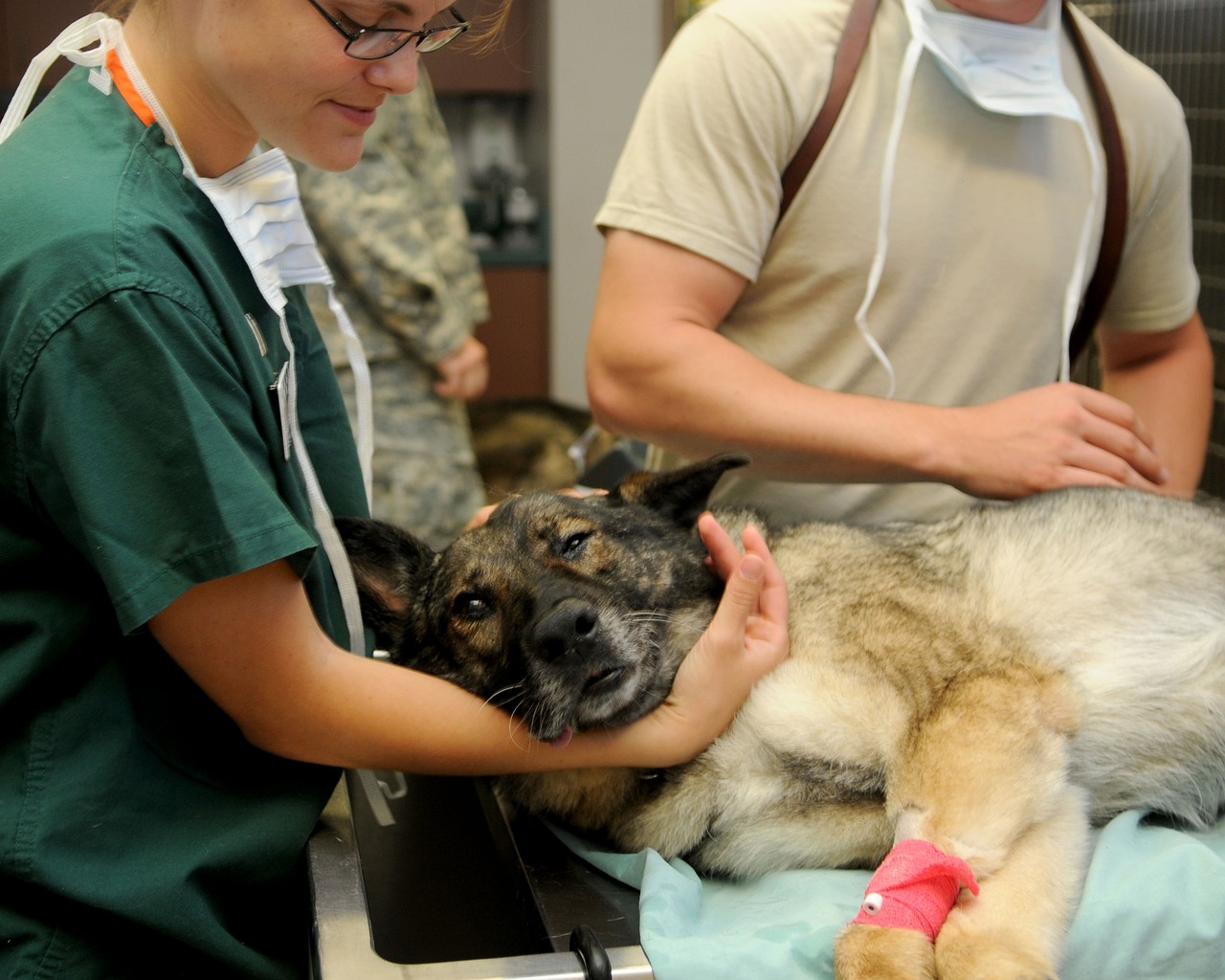Cancer is one of the leading health concerns in companion animals, and in fact, rates are rising as pets live longer lives. From lymphomas to mast cell tumors, osteosarcoma, and mammary cancers, oncology demands a level of expertise beyond general practice. Hiring a veterinary oncologist allows hospitals and specialty centers to provide advanced cancer diagnostics, treatment, and compassionate client support in-house. Without oncology services, however, hospitals often face referral leakage, long delays for patients, and lost revenue.
Pulivarthi Group is a trusted veterinary oncology recruitment agency, connecting employers with board-certified oncologists, cancer specialists, and oncology-trained veterinarians. Whether you need locum veterinary oncologist staffing for short-term coverage, temporary placements during peak caseloads, or permanent hires to build a full oncology department, we therefore deliver tailored veterinary oncology staffing solutions. As a dedicated veterinary oncologist staffing agency, we source, vet, and place candidates who strengthen both clinical capabilities and hospital culture.
Why hire a Veterinary Oncologist
Veterinary oncologists bring expertise in diagnosing and treating cancers with advanced therapies, including chemotherapy, immunotherapy, targeted therapy, and palliative care. As a result, their presence ensures pets receive cutting-edge treatments, improving survival times and quality of life. For clients, moreover, having access to oncology services within their trusted hospital builds loyalty and reduces the stress of external referrals.
Financially, oncology generates consistent, long-term revenue streams. Unlike one-time surgeries, oncology treatments often involve weeks or months of visits, diagnostics, and follow-ups. This not only supports hospital profitability but also, importantly, creates lasting client relationships. Additionally, veterinary oncologists provide guidance for general practitioners and specialists, offering second opinions, case reviews, and collaboration on multi-disciplinary care.
Benefits of hiring a veterinary oncologist include:
-
Access to advanced cancer diagnostics and therapies.
-
Reduced referral leakage and improved revenue retention.
-
Long-term client loyalty through continuity of care.
-
Improved collaboration across hospital specialties.
-
Enhanced hospital reputation as a full-service provider.
For oncology standards, see Veterinary Cancer Society (VCS) (vetcancersociety.org).
Types of Veterinary Oncologist Roles
Oncology roles vary depending on hospital size, caseload, and service goals. Medical oncologists specialize in diagnosing and treating cancers with chemotherapy, targeted therapies, and immunotherapy. In contrast, Radiation oncologists focus on radiation-based treatments using advanced technologies like linear accelerators and stereotactic radiation therapy.
Hospitals needing flexibility may choose locum veterinary oncologists, who cover during staff leave or to manage spikes in cancer caseloads. Temporary oncologists support promotional cancer screening programs or seasonal demand. Contingent staffing provides case-based or shift-based oncology coverage, ideal for specialty centers piloting oncology services.
For hospitals expanding into referral services, board-certified veterinary oncologists (DACVIM-Oncology) serve as anchors for oncology departments, mentoring junior staff and collaborating with surgeons and internists. Veterinary cancer specialists also contribute to research and clinical trials, bringing innovative treatment options into practice.
Types of roles include:
-
Medical Oncologist (DACVIM-Oncology)
-
Radiation Oncologist
-
Locum Veterinary Oncologist
-
Temporary or Contingent Oncologist
-
Oncology Department Director / Service-Line Leader
-
Veterinary Cancer Specialist for Clinical Trials
Pulivarthi Group Veterinary Oncology Staffing Services
Pulivarthi Group understands the unique challenges of staffing oncology specialists. With limited supply and rising demand, hospitals need a partner who can quickly connect them with the right candidates. Our veterinary oncology staffing solutions provide flexible options to fit any hospital’s needs.
For long-term service growth, our permanent veterinary oncologist staffing places board-certified oncologists to establish oncology departments. For short-term demands, our temporary veterinary oncologist staffing provides predictable coverage during caseload surges or staff leave. Locum staffing delivers immediate relief coverage, while contingent oncology staffing supports project-based needs such as cancer awareness events or clinical trial enrollment.
We also provide executive recruitment services for oncology department directors, who can scale cancer services, manage staff, and guide hospital strategy. Additionally, we support oncology technician staffing, ensuring specialists have skilled teams for chemotherapy administration, patient monitoring, and client education.
Our services include:
-
Permanent Veterinary Oncologist Staffing
-
Locum Veterinary Oncologist Staffing
-
Contingent Oncology Staffing
-
Veterinary Oncology Technician Staffing
-
Executive & Service-Line Leader Recruitment
Where Employers Find Veterinary Oncologists
Recruiting oncologists is often a challenge due to their limited training pathways. Residency programs under the American College of Veterinary Internal Medicine (ACVIM-Oncology) are the primary pipeline for new oncologists, though competition is fierce. Specialty conferences and continuing education events, like those hosted by the Veterinary Cancer Society, are also valuable for networking.
General job boards rarely yield qualified candidates. Employers requiring speed and precision benefit most from partnering with a veterinary oncology employment agency like Pulivarthi Group. By maintaining a network of board-certified oncologists, we reduce hiring timelines and connect hospitals with pre-vetted candidates who match their needs.
Sourcing channels include:
-
Specialized staffing agencies (Pulivarthi Group)
-
ACVIM oncology residency programs
-
Veterinary Cancer Society (VCS) networks
-
Specialty conferences and CE events
-
General job boards (limited efficacy)
Hiring Challenges and Solutions
Recruiting veterinary oncologists comes with unique challenges. The first and most pressing is scarcity. Board-certified oncologists (DACVIM-Oncology) are in high demand, and the training pipeline produces a limited number each year. Employers must be competitive with compensation, CE support, and scheduling flexibility to attract top candidates.
The second challenge is assessing clinical expertise. Oncology requires mastery of protocols, chemotherapy safety, and client communication. Employers should request case portfolios, chemotherapy logs, or peer-reviewed publications to verify depth of experience. Culture fit is equally important—oncologists must collaborate closely with surgeons, internists, and emergency doctors. Misalignment may lead to inconsistent care plans and client confusion.
Another challenge is burnout risk, given the emotionally taxing nature of oncology. Hospitals must provide strong technician support, manageable caseloads, and wellness programs to mitigate compassion fatigue.
Key challenges include:
-
Limited supply of board-certified oncologists.
-
Evaluating oncology case management and chemotherapy skills.
-
Ensuring multidisciplinary collaboration and culture fit.
-
Preventing burnout through workload management.
For certification standards, see American College of Veterinary Internal Medicine (ACVIM) (acvim.org).
Qualifications and Licensing Checklist
Veterinary oncologists require advanced education and certification beyond general practice. At minimum, candidates must hold a DVM/VMD degree, have passed the NAVLE, and hold an active state license. Since chemotherapy involves controlled substances, DEA registration is mandatory.
The most important credential is board certification through ACVIM-Oncology, which requires a residency and examination process. Board-certified oncologists are recognized as specialists capable of advanced diagnostics, chemotherapy, and multimodal treatment planning. Employers should also confirm liability insurance, OSHA compliance, and CE participation in oncology topics.
Qualification checklist includes:
-
DVM/VMD and NAVLE passage.
-
Active state veterinary license.
-
DEA registration for chemotherapy drugs.
-
Board certification (DACVIM-Oncology).
-
Liability insurance and OSHA compliance.
-
CE in oncology, chemotherapy, and immunotherapy.
Sample Veterinary Oncologist Job Description
Role Summary
We are seeking a Board-Certified Veterinary Oncologist (DACVIM-Oncology) to join our multi-specialty hospital. The oncologist will diagnose and treat cancers using advanced modalities, collaborate with internal teams, and provide compassionate client care.
Key Responsibilities
-
Perform diagnostics including cytology, biopsy, imaging review, and staging.
-
Administer chemotherapy, immunotherapy, and targeted therapies.
-
Collaborate with surgeons, radiologists, and internists for multimodal treatment.
-
Educate clients on prognosis, options, and ongoing care.
-
Train and mentor veterinary staff in oncology practices.
-
Maintain safety standards for chemotherapy handling.
Qualifications
-
DVM/VMD and NAVLE passage.
-
Active state license and DEA registration.
-
DACVIM-Oncology certification.
-
Strong diagnostic and communication skills.
For oncology job descriptions, see AVMA career resources (avma.org).
Sample Interview Questions for Veterinary Oncologists
Examples include:
-
How do you approach designing chemotherapy protocols for lymphoma vs. osteosarcoma?
-
Tell me about a time you had to deliver a poor prognosis to a client. How did you handle it?
-
How do you ensure safety in chemotherapy administration for both patients and staff?
-
What is your experience collaborating with surgeons on multimodal cancer care?
-
Which CE or research most influenced your oncology practice in the past two years?
-
How do you prevent compassion fatigue in yourself and your team?
For interview frameworks, see Veterinary Cancer Society resources (vetcancersociety.org).
When to Hire a Veterinary Oncologist
The decision to hire an oncologist often emerges when cancer cases consistently exceed your general practitioners’ expertise. Frequent referrals for lymphoma, mast cell tumors, or chemotherapy indicate lost revenue and missed opportunities for client loyalty. Long wait times for oncology appointments or delays in treatment are other triggers.
Hospitals planning to expand into referral or specialty services should also consider adding an oncologist early, as oncology is a cornerstone of specialty medicine. Emergency hospitals often hire oncologists to manage cancer-related emergencies, such as acute tumor bleeds or paraneoplastic syndromes.
Triggers for hiring include:
-
High volume of cancer case referrals.
-
Long wait times for oncology services.
-
Expansion into specialty or referral medicine.
-
Emergency demand for cancer-related care.
-
Client requests for in-house oncology expertise.
How to Evaluate Veterinary Oncologist Skills
Evaluation should focus on both technical oncology knowledge and communication. Employers should request chemotherapy case logs to confirm experience with common protocols. Reviewing treatment reports or peer-reviewed publications offers insight into diagnostic rigor.
Working interviews are invaluable—observe how candidates communicate with clients, explain prognosis, and collaborate with other specialists. For safety assessment, confirm knowledge of chemotherapy handling protocols in line with OSHA and NIOSH standards (osha.gov).
Evaluation methods include:
-
Case portfolio and chemotherapy logs.
-
Peer-review of treatment plans.
-
Client communication role-play.
-
Safety protocol knowledge checks.
-
Team collaboration observation.
Compensation and Rewards for Veterinary Oncologists
Oncologists are among the highest compensated veterinary specialists due to demand and complexity of care. Packages typically include a base salary plus production incentives, especially in referral centers.
Hospitals should also offer sign-on bonuses, relocation support, and CE allowances. Coverage for ACVIM dues, liability insurance, and DEA registration is expected. Predictable scheduling, technician support, and mental health resources are essential to reduce burnout.
Typical compensation includes:
-
Base salary plus production pay.
-
CE and ACVIM membership reimbursement.
-
Sign-on and relocation bonuses.
-
Liability, DEA, and licensure coverage.
-
Health and wellness benefits, including mental health support.
SOPs Worth Formalizing in Veterinary Oncology
Oncology departments must run on strict Standard Operating Procedures to ensure patient and staff safety. Critical SOPs include chemotherapy handling and disposal protocols, client communication templates for consent and follow-ups, and treatment scheduling guidelines to prevent errors.
Safety SOPs should align with NIOSH and OSHA standards for handling hazardous drugs (osha.gov). Infection control protocols, patient monitoring procedures, and controlled substance compliance under DEA regulations (deadiversion.usdoj.gov) are also mandatory.
Essential oncology SOPs include:
-
Chemotherapy safety and disposal protocols.
-
Client communication and informed consent.
-
Controlled substance compliance.
-
Scheduling and monitoring standards.
-
Staff training and protective equipment use.
Retention Strategies for Veterinary Oncologists
Retaining oncologists requires addressing both clinical and emotional challenges of the role. Employers should provide predictable caseloads, technician support, and protected time for CE. Supporting research opportunities and conference participation enhances engagement.
Recognition and mental health support are critical, given the emotional weight of oncology. Hospitals should offer wellness programs, peer support groups, regular feedback sessions, and access to modern equipment and strong collaboration with other specialists to improve job satisfaction further.
Effective retention strategies include:
-
Predictable caseload and technician support.
-
CE and research support.
-
Recognition and wellness programs.
-
Access to advanced oncology equipment.
-
Inclusion in hospital leadership and strategy.
How Pulivarthi Group Delivers Veterinary Oncology Staffing
Pulivarthi Group provides tailored veterinary oncology staffing solutions, helping hospitals secure board-certified oncologists, locums, and technicians. We begin with detailed intake, aligning on caseloads, culture, and service goals.
Our sourcing spans ACVIM networks, residency programs, and passive talent outreach. Candidates are screened for board certification, clinical expertise, and communication skills. We deliver calibrated shortlists, coordinate interviews, and manage credentialing.
Post-placement, we track outcomes, gather feedback, and refine searches. Whether you need locum oncology coverage, temporary support, or a permanent DACVIM-Oncology specialist, Pulivarthi Group ensures your hospital gains immediate, reliable expertise.
Ready to Hire a Veterinary Oncologist?
Cancer cases require speed, precision, and compassion. Hiring a veterinary oncologist ensures your hospital delivers advanced cancer care, strengthens client trust, and retains critical revenue.
Pulivarthi Group is the trusted veterinary oncology employment agency, providing permanent, temporary, locum, and contingent staffing solutions. With pre-vetted candidates and streamlined processes, we ensure you secure oncology expertise quickly and effectively.
Don’t let referrals or unmet client demand slow your hospital’s growth. Book a meeting with Pulivarthi Group today to receive a customized shortlist of oncology specialists ready to elevate your practice.














